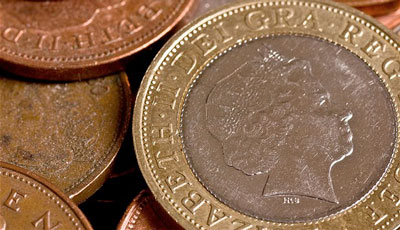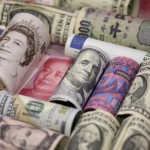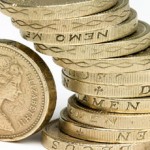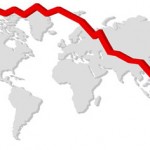Pound Posts Biggest Monthly Decline Since May 2013

The pound posted its biggest monthly decline against the dollar since May 2013 as signs of growth in the U.S. economy boosted expectations for higher Federal Reserve interest rates.
Sterling fell to a seven-week low versus the greenback as data showed U.K. consumer confidence dropped in July and house prices grew at the slowest pace since April 2013. Bank of England Deputy Governor Ben Broadbent said in an interview with Bloomberg News yesterday that the “edge is coming off” the housing market. The pound weakened for a fourth day against the euro, while U.K. government bonds fell as data added to evidence the U.S. labor market is strengthening.
“Both the U.K. housing and consumer confidence data releases were on the weaker side and I would expect further declines for pound-dollar,” said Neil Jones, head of hedge-fund sales at Mizuho Bank Ltd. in London. “The Broadbent comments catalyze the selling process. Investors who were looking to sell on a small blip will go to the market and sell on these comments. For me, it was a warning that rates should not be raised too quickly.”
The pound dropped 0.2 percent to $1.6884 as of 4:35 p.m. London time, extending its monthly decline to 1.3 percent. The U.K. currency touched $1.6857, the lowest since June 12. Sterling weakened 0.1 percent to 79.28 pence per euro, paring this month’s gain to 1 percent.
U.K. property values rose 0.1 percent from June, Nationwide Building Society said today. That’s the smallest increase since April 2013. A consumer sentiment index by GfK fell to minus 2 this month, from 1 in June.
Slowdown Expectations
“Partly because of what’s happening in the housing market, partly because the global economy is arguably a little softer than one might have hoped, to expect some slowdown over the next year, toward the end of the year into next year, isn’t unreasonable,” Broadbent said, referring to the U.K. economy.
The pound strengthened 12 percent in the past year, making it the best performer among 10 developed-nation currencies tracked by Bloomberg Correlation-Weighted Indexes. Sterling has pared gains versus the dollar as investor turned their focus on interest-rate expectations from the U.K. to the U.S.
Sterling has weakened 1.8 percent since climbing to $1.7192 on July 15, the highest level since October 2008.
Forward contracts based on the sterling overnight interbank average, or Sonia, show investors are betting U.K. borrowing costs will increase 25 basis points by February. The Bank of England has kept interest rates at a record-low 0.5 percent since March 2009.
Growth Resumes
Data yesterday showed the U.S. economy grew at a 4 percent annualized rate in the second quarter after shrinking a revised 2.1 percent in the three months through March. The Fed left interest rates at a record low yesterday and further reduced its asset purchases by $10 billion a month to $25 billion, on track to end tapering by October.
“Sentiment shifted in mid-July as U.K. rate hikes have been fully priced in” by the first quarter of 2015, said Harry Adams, head of trading at Argentex LLP, a currency advisory company in London. “Since then, attention has turned to the Fed. The Fed could hike with larger increments, bringing the headline rate above the Bank of England in the next 12 months. Yesterday’s GDP data and Fed comments were a reminder of this, which is why the pound is giving ground back to the dollar.”
Gilts Fall
Gilts dropped for a second day, paring a monthly advance, as a Labor Department report showed U.S. monthly jobless claims at the lowest in eight years.
The benchmark 10-year gilt yield rose two basis points, or 0.02 percentage point, to 2.62 percent. The rate dropped five basis points this month and fell to 2.53 percent on July 29, the lowest since May 29. The 2.25 percent bond due in September 2023 fell 0.145, or 1.45 pounds per 1,000-pound face amount, to 97.06.
Treasury 10-year yields climbed as much as five basis points to 2.61 percent, the highest level since July 8. The rate jumped 10 basis points yesterday, the biggest increase since March 19.
Gilts returned 4.5 percent this year through yesterday, Bloomberg World Bond Indexes show. Treasuries gained 3.2 percent and German securities earned 5.5 percent.
Source: Bloomberg




























